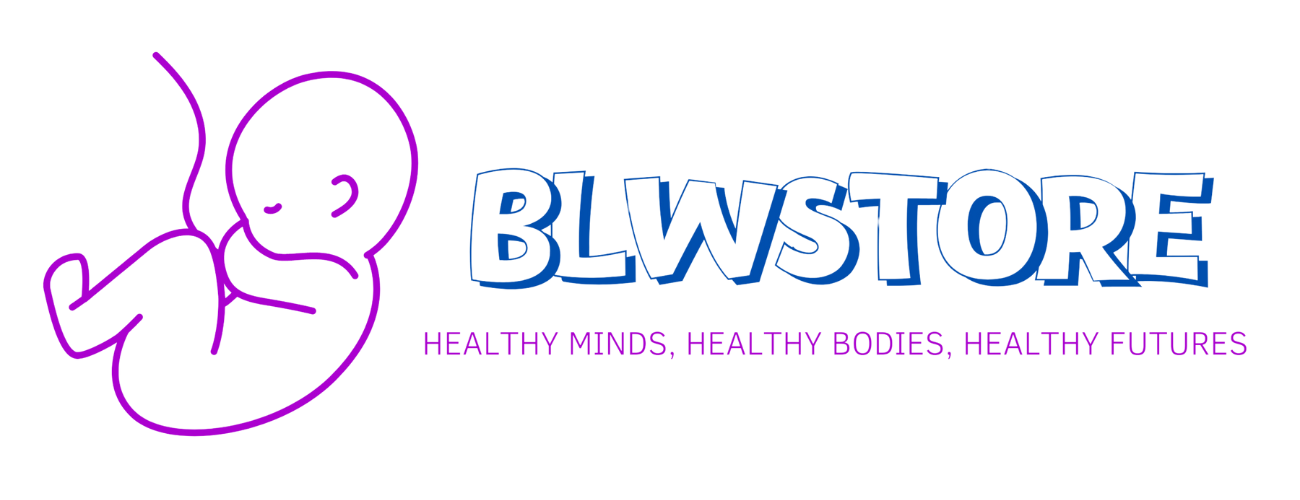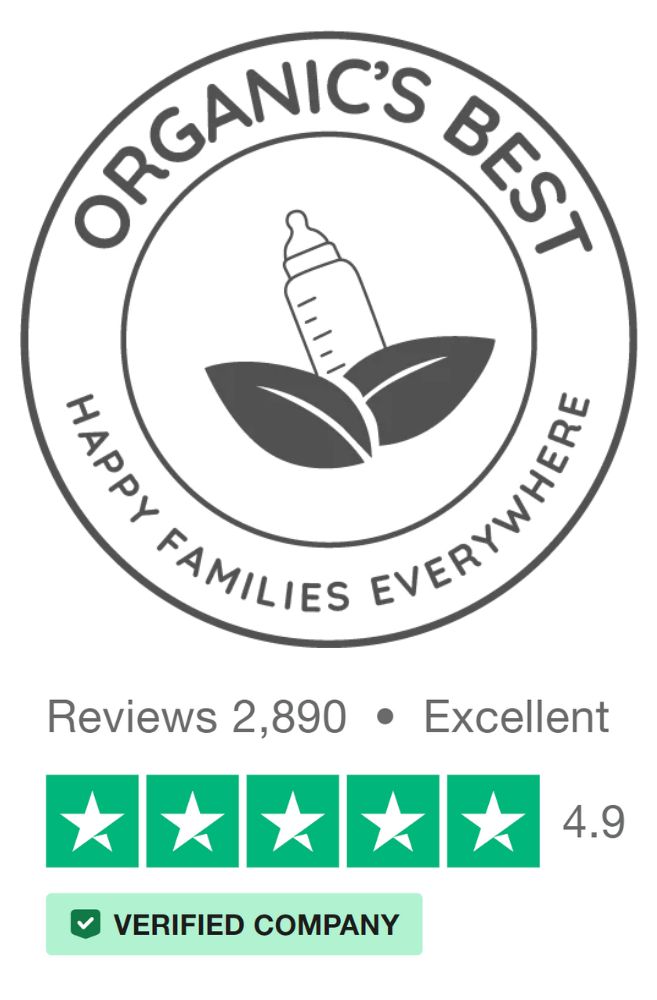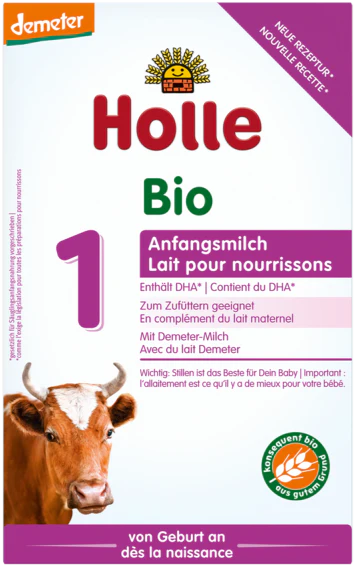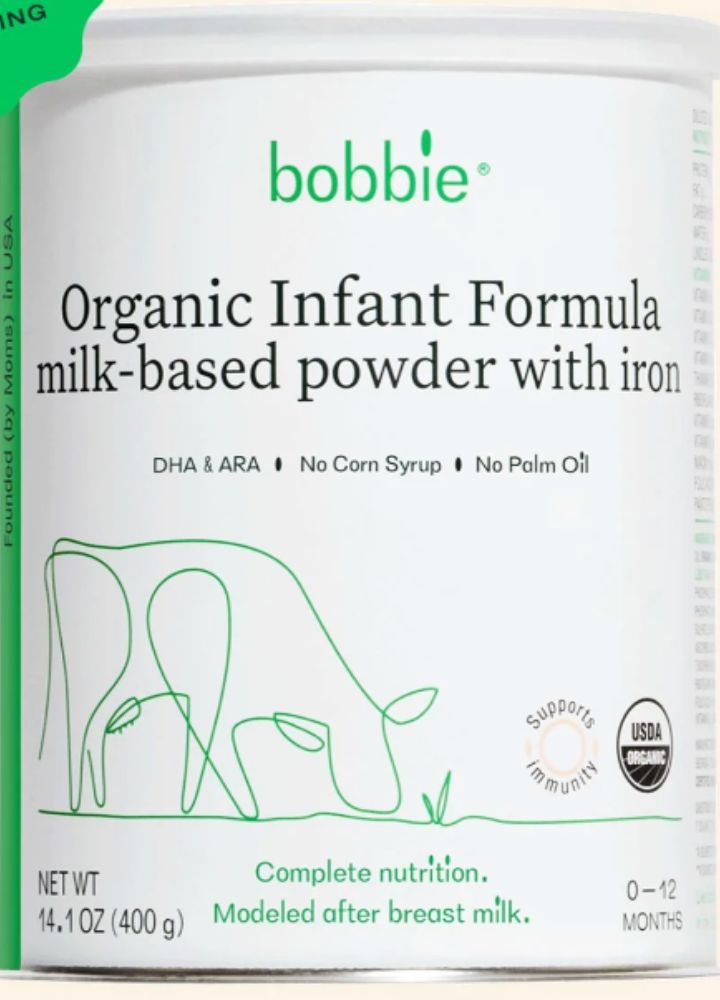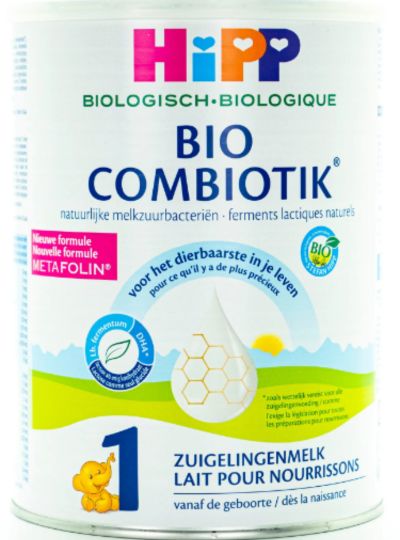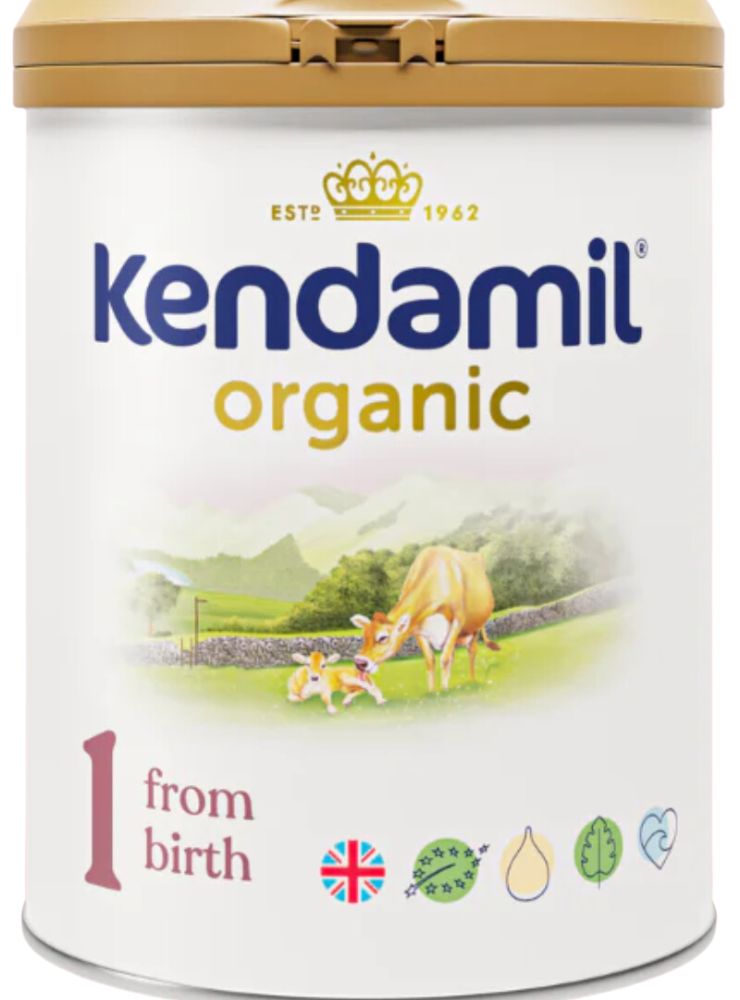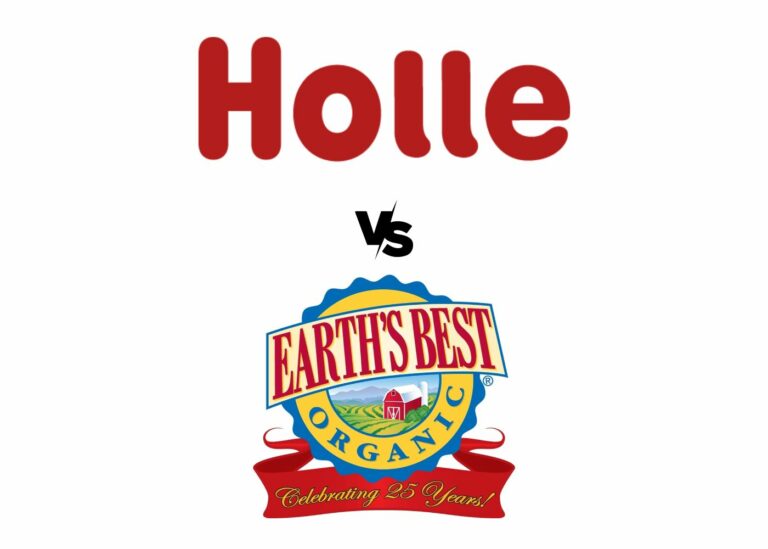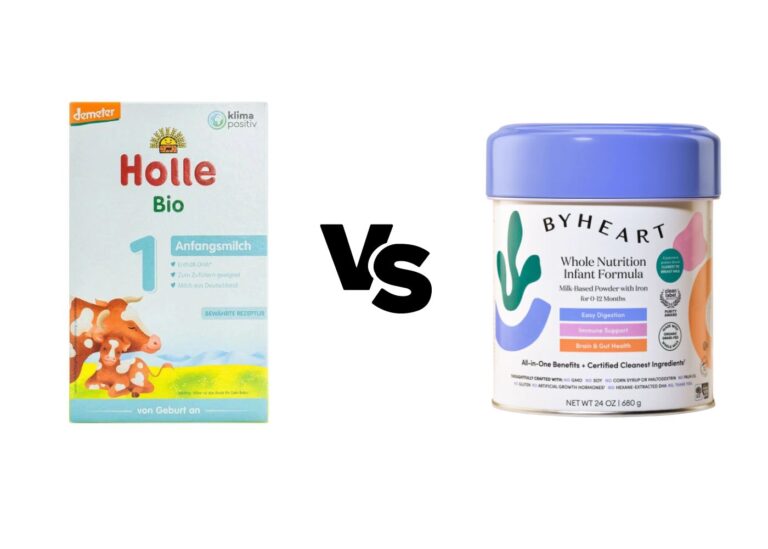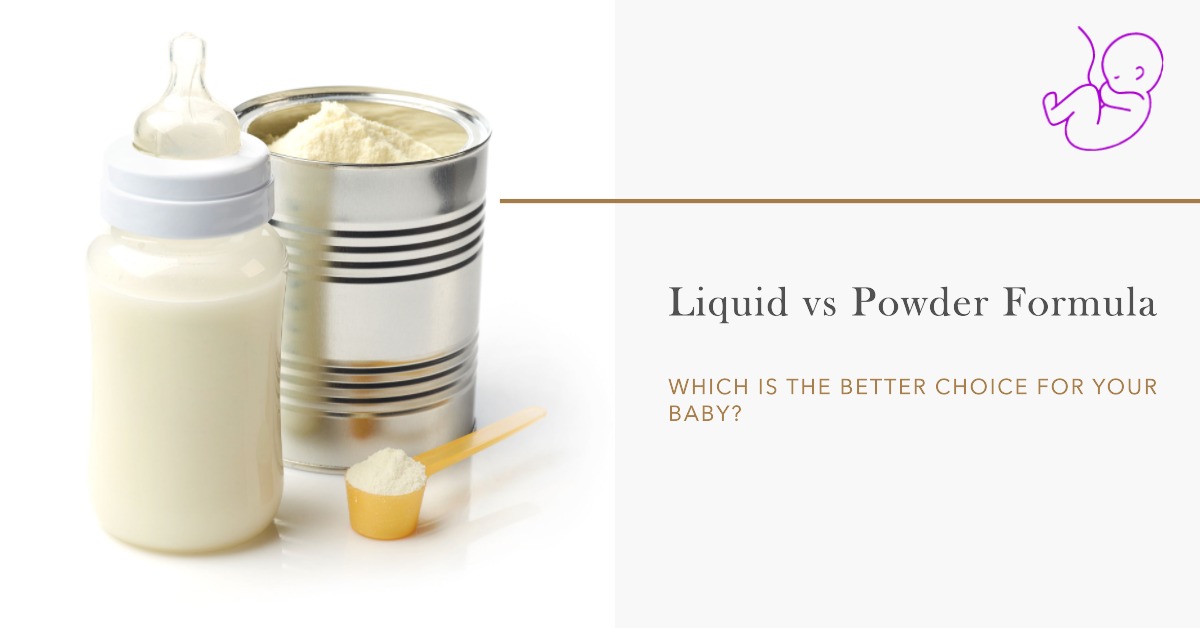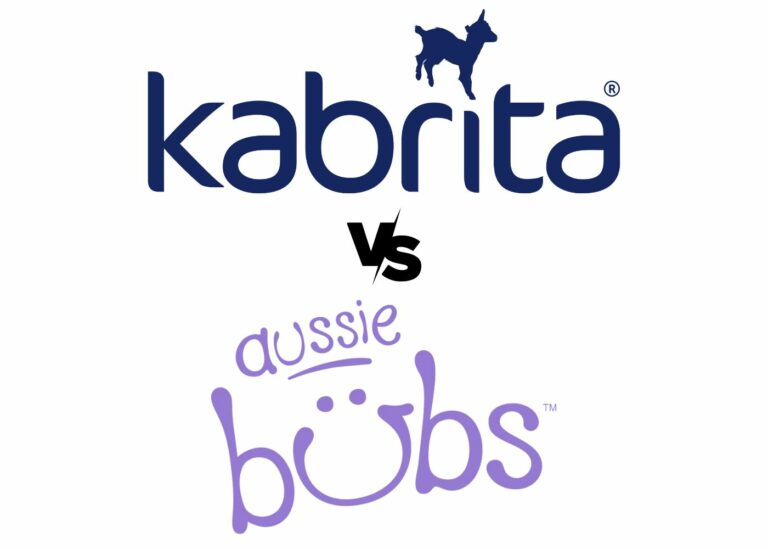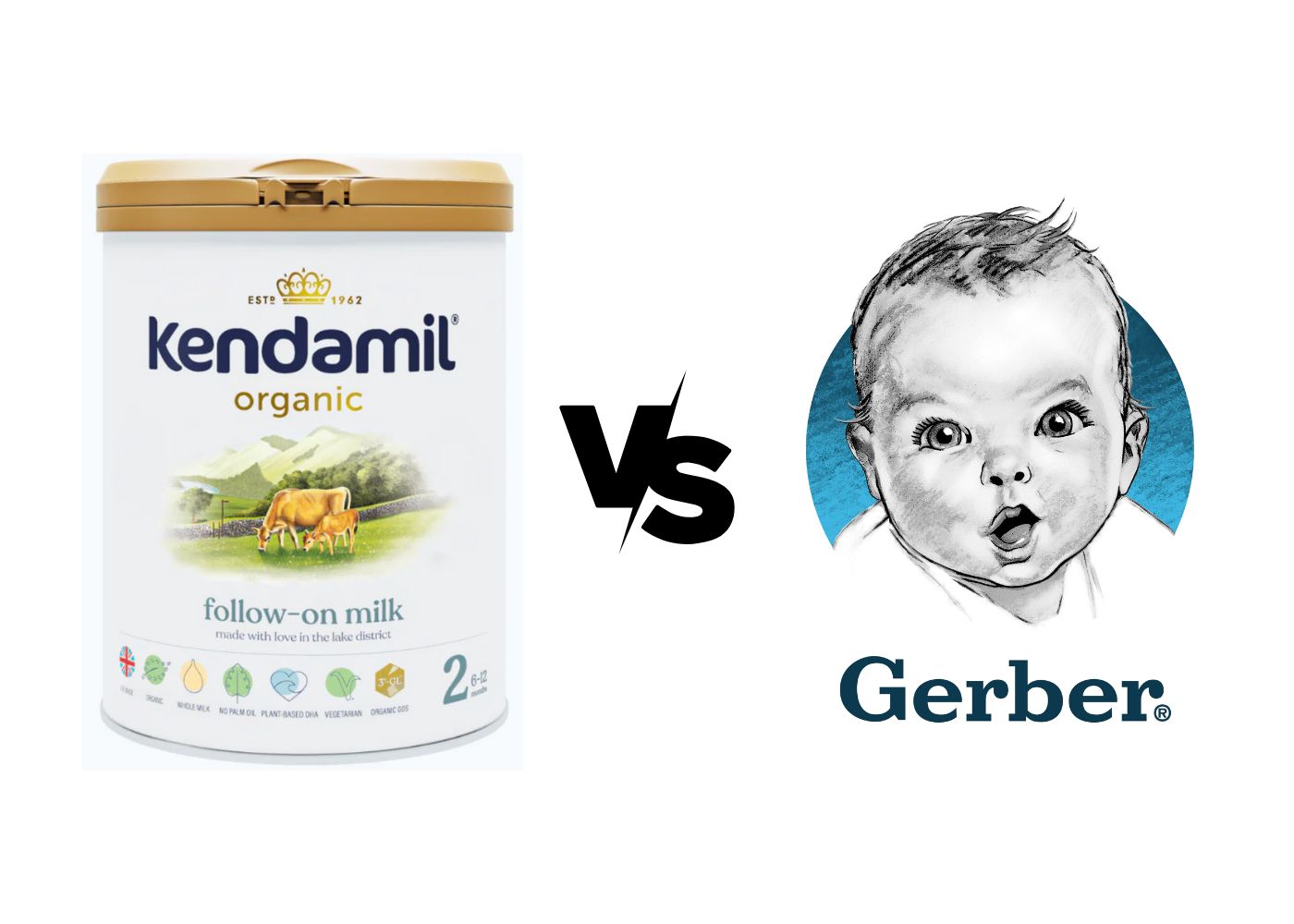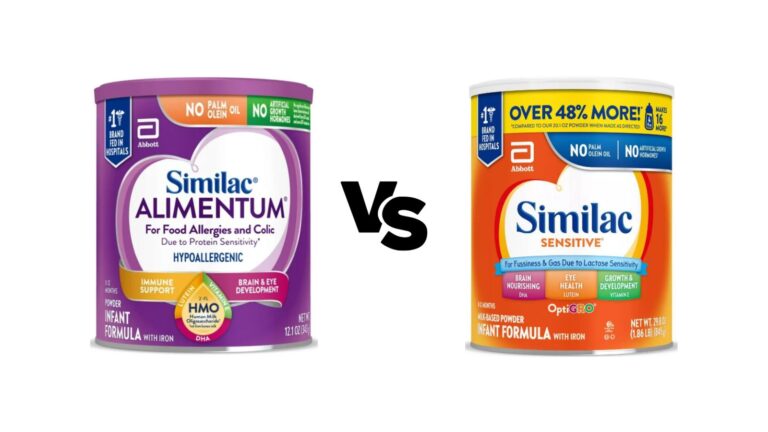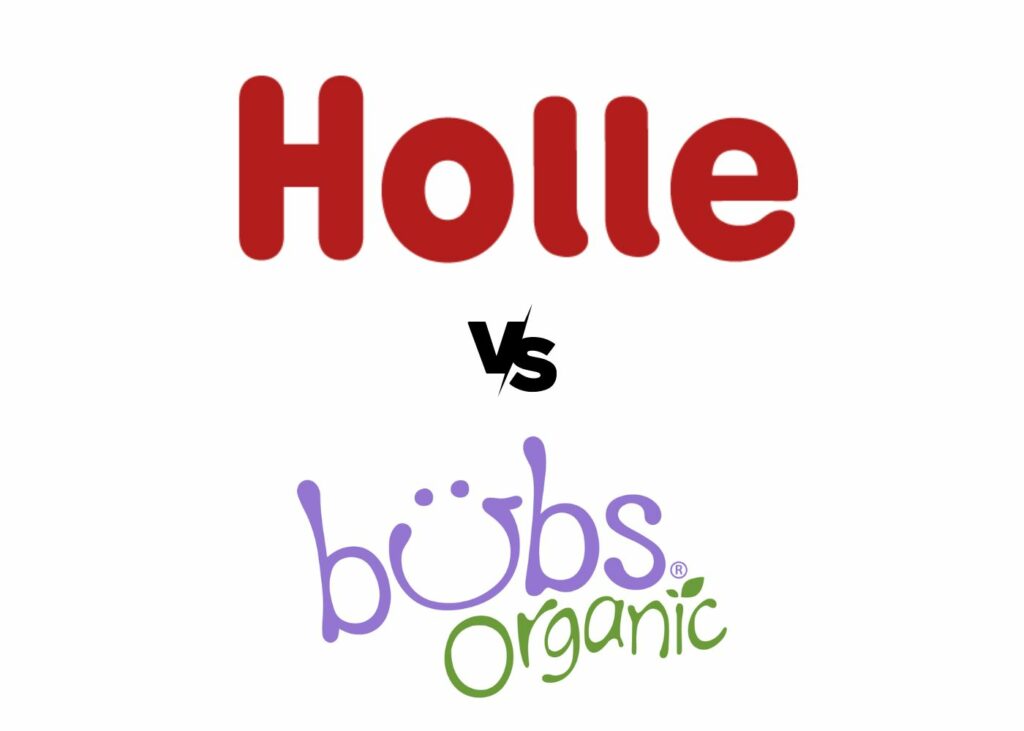
Key Differences Between Holle and Bubs
| Features/Aspect | Holle Cow | Bubs Cow |
|---|---|---|
| Organic Certification | Demeter-certified organic | Organic, clean label certified |
| Protein Source | Skimmed milk and partially demineralized whey | Whole milk powder, whey protein concentrate |
| Carbohydrate Source | Organic lactose | Organic lactose |
| Fat Source | Vegetable oils (palm oil, sunflower oil, rapeseed oil), DHA/ARA-rich oils | Organic vegetable oil blend (high-oleic sunflower oil, coconut oil, soy oil, canola oil), DHA from algae |
| Prebiotics/Probiotics | None | Galacto-Oligosaccharides (GOS), Bifidobacterium longum BB536 |
| Notable Features | Biodynamic, chemical-free agriculture, high sustainability standards | Australian-sourced ingredients, emphasis on grass-fed cows, non-GMO |
| Recommendation | Preferred for nutritional quality and ingredient sourcing | Preferred if baby benefits from prebiotics and probiotics |
In this article, we will compare two popular organic formulas: Holle and Bubs.
We will analyze their nutritional composition and ingredients to help you make the best decision for your little one.
We have chosen the cow version of the formulas for this comparison since they are more popular. However, we have also given our opinion about their goat formula below.
Let’s get after it!
Our Short Answer: Holle Cow vs Bubs Cow
After analyzing both formulas, we would stay with Holle for the following reasons:
- It has one of the best organic certifications in the world (Demeter), and it is a brand established since 1933.
- It does not use high-oleic, soy, or canola oils like Bubs. These vegetable oils are not the most nutritious, especially soybean oil, which should be eliminated outright.
Bubs also has its strengths, such as its use of prebiotics and probiotics, which for some babies will be important ingredients.
To summarize, Holle seems to us to be better nutritionally, but if you know from your pediatrician that your baby would benefit from pre and probiotics, Bubs will be a better choice.
Holle Goat vs Bubs Goat
| Nutrient | Holle Goat | Bubs Goat |
|---|---|---|
| Protein Source | Whole Goat Milk Powder | Goat Milk Solids and Goat Whey Protein Concentrate |
| Carb Source | Lactose | Lactose |
| Fat Source | Vegetable Oils (Sunflower Oil, Rapeseed Oil) | Vegetable Oil Blend (Palm Olein, High Oleic Sunflower Oil, Canola Oil, Sunflower Oil, Coconut Oil) |
| Pre/Probiotics | None | Galacto-Oligosaccharides (GOS) |
Looking at the Holle Goat and Bubs Goat compositions, we would stay with Holle also for the following reasons:
- Their fat blend is more natural, healthy, and nutritious. It only uses two vegetable oils, and the rest is goat’s milk fat. Bubs uses palm olein (the refined version of palm oil, which is worse nutritionally and linked to calcium absorption problems) and high-oleic and canola oils.
For this reason alone, we would choose Holle for our baby.
With over 100,000 orders delivered globally since 2019, Organic's Best offers clean, safe, and nutritionally rich formulas and snacks.
Free shipping over $100, commitment to freshness and authenticity.
- Express delivery in 2 to 5 business days
- Sourcing from European manufacturers
- Minimum shelf life of 6 months
- Climate-Controlled Warehouse
Give your little one the best start.
CODE 'BLW' for a 5% discount in all orders
Overview of the Two Formulas
Holle Bio emphasizes high standards with Demeter-certified organic farming, chemical-free agriculture, and sustainability since 1933 in Germany.
Bubs Organic focuses on clean, Australian-sourced ingredients, organic milk from grass-fed cows, and a commitment to no GMOs or artificial additives.
Holle Bio
Holle is a European brand that takes pride in its impeccable standards and certifications. They are known for their:
- Demeter-certified organic farms: Holle sources its milk from Demeter-certified organic farms, ensuring the highest organic certification in Europe.
- Biodynamic approach: These farms use chemical-free agricultural practices prioritizing animal welfare and environmental sustainability, providing a strong foundation for clean, wholesome ingredients.
- Origin: Established in Germany, Holle has a long-standing history of providing high-quality, organic baby formulas since 1933.
Holle’s commitment to quality and sustainability sets it apart, making it a trusted choice for many parents, including us.
Bubs Organic
Bubs, an Australian brand, has earned a name for itself in the world of organic baby formulas. Known for their:
- Australian roots: Bubs is a home-grown brand that prides itself on sourcing ingredients from the pristine Australian environment.
- Organic milk from grass-fed cows: Bubs uses organic milk from grass-fed cows, ensuring a nutritionally balanced formula that supports your baby’s growth and development.
- Clean Label certified: Their products are free from GMOs, corn syrup, maltodextrin, growth hormones, artificial sweeteners, chemicals, pesticides, colors, and preservatives, offering a naturally gentle formula.
Bubs’ dedication to providing clean, organic formulas has endeared them to parents across the globe.
Nutritional Composition
Holle Bio uses skimmed milk and whey for easily digestible protein, while Bubs Organic blends whole milk and whey for balanced protein.
Both formulas prioritize organic lactose for energy.
Holle Bio’s fats include DHA/ARA-rich oils for brain and eye health, avoiding less desirable oils.
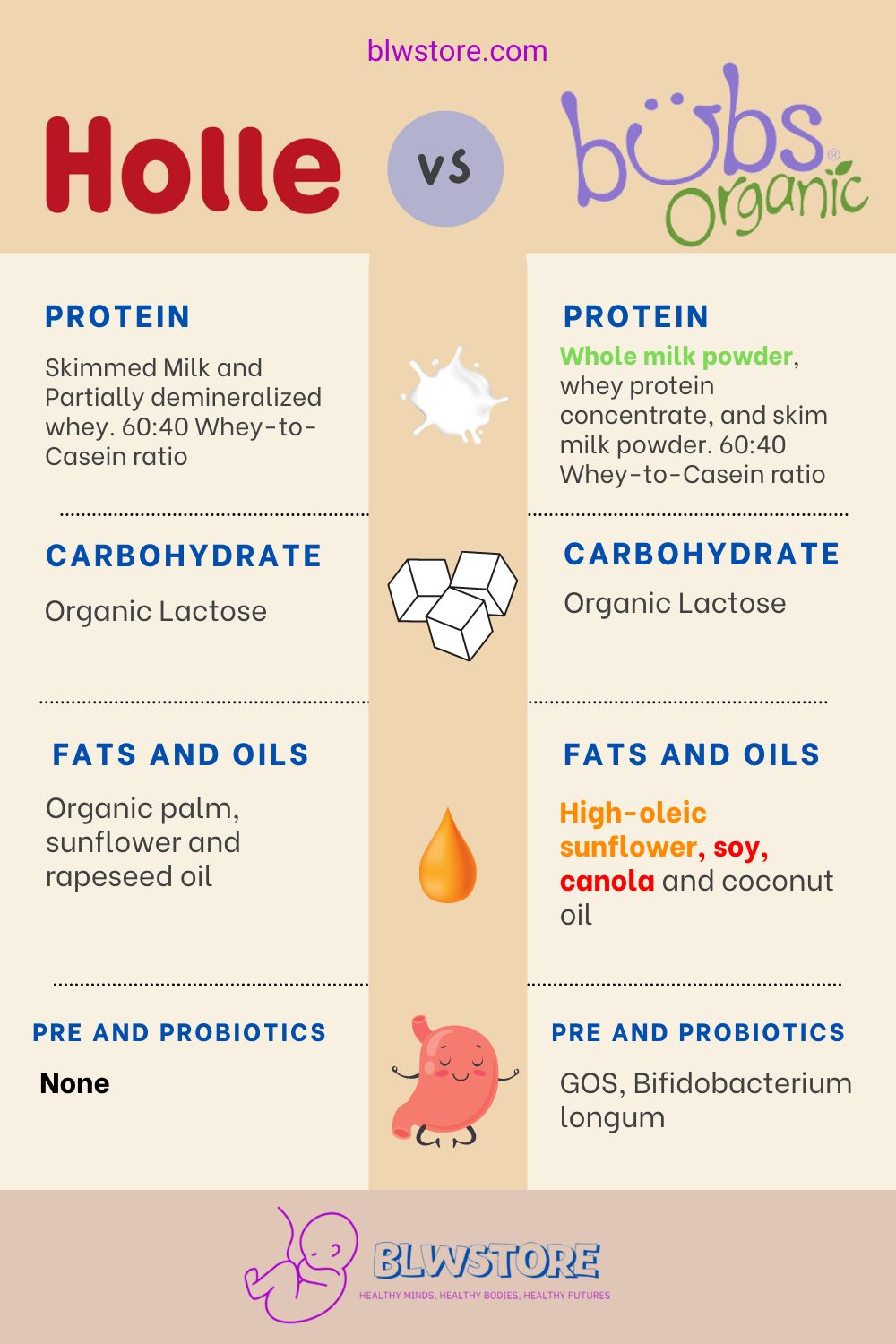
Protein Content
Holle Bio: The protein in Holle Bio comes mainly from skimmed milk and partially demineralized whey powder. These are parts of milk that are rich in protein. This formula tries to match the quality of protein found in natural breast milk.
Bubs Organic: Bubs uses a blend of whole milk powder, whey protein concentrate, and skim milk powder for its protein sources. This combination aims to supply infants with a balanced blend of proteins, also resembling those found in the mother’s milk.
Both formulas are similar in their protein content. Holle’s is easier to digest on paper thanks to using partially demineralized whey, but the difference is small. Bubs uses whole milk, which is great for fat content (read below). Both formulas use a whey-to-casein ratio similar to breast milk, around 60:40.
Carbohydrate Content
Holle Bio: The primary source of carbohydrates in Holle Bio is organic lactose, which comes from milk. Lactose is a type of sugar that babies can easily digest, providing them with the energy they need for their daily activities and growth.
Bubs Organic: Bubs Organic also relies on lactose as its main carbohydrate source, emphasizing organic lactose to ensure that the energy supplied is clean and free from harmful chemicals or pesticides.
There are no differences in carbohydrate content, with both formulas using lactose as their carbohydrate source. This is the best option for most babies, except those with lactose sensitivities.
Fats and Oils
Holle Bio: The fats in Holle Bio include a mix of vegetable oils such as palm oil, sunflower oil, and rapeseed oil. Additionally, it contains special oils from microalgae (Schizochytrium sp.) and Mortierella Alpina, which are rich sources of DHA and ARA fatty acids. These fats are important because they help with brain development and the eyes’ health.
Bubs Organic: This formula uses an organic vegetable oil blend that includes high-oleic sunflower oil, coconut oil, soy oil, and canola oil. It also has added DHA from algae and ARA to ensure the formula is rich in fats crucial for brain development and eye health.
Holle stands out with its superior fat blend compared to Bubs, as it avoids using high-oleic, soy, and canola oils, which are considered less desirable nutritionally. Holle incorporates organically sourced palm oil, celebrated for its rich palmitic acid content. This fatty acid closely mirrors those found in breast milk, making it an optimal choice for infant nutrition. Holle’s choice to use pure palm oil, rather than its refined counterpart, palm olein, further ensures their formula’s nutritional integrity and quality.
Nutritional Facts Comparison Table
| Nutrient | Holle | Bubs |
|---|---|---|
| Energy | 68 kcal | 68.9 kcal |
| Protein | 1.4 g | 1.56 g |
| Fat, total | 3.4 g | 3.7 g |
| – Docosahexaenoic Acid (DHA)** | 15 mg | 4.43 mg |
| – Arachidonic Acid (ARA)** | 15 mg | 5.42 mg |
| Carbohydrates | 8 g | 7.3 g |
| Vitamin A | 54.8 µg | 73 µg |
| Vitamin D | 1.5 µg | 1.2 µg |
| Vitamin E | 0.9 mg | 1.9 mg |
| Vitamin K | 5.4 µg | 7 µg |
| Vitamin C | 6.1 mg | 9.7 mg |
| Folic Acid | 10.1 µg | 16.2 µg |
| Vitamin B12 | 0.14 µg | 0.33 µg |
| Calcium | 59.9 mg | 70 mg |
| Iron | 0.54 mg | 1.0 mg |
| Zinc | 0.45 mg | 0.7 mg |
| Iodine | 15.1 µg | 24 µg |
| Selenium | 3.9 µg | 3.0 µg |
Probiotics and Prebiotics
Holle formula does not contain added prebiotics or probiotics, while Bubs offers GOS as a prebiotic and Bifidobacterium longum BB536 as a probiotic.
While prebiotics and probiotics can offer health benefits, they’re not always essential for every baby. It ultimately depends on your baby’s individual needs and how they react to specific ingredients. Let’s compare the prebiotics and probiotics content in Holle and Bubs formulas:
- Holle: Holle formula does not contain added prebiotics or probiotics. This is the best choice for babies who do not require additional digestive support or want to avoid extra additives.
- Bubs: Bubs formula contains organic galacto-oligosaccharide (GOS) as a prebiotic and Bifidobacterium longum BB536 as a probiotic. This combination can promote a healthy gut flora and support digestion for some infants.
Best Places to Buy Holle and Bubs
HOLLE
If you live outside Europe, we recommend you purchase Holle through Organic’s Best or The Milky Box. They are the best European formula retailers in the world currently.
Holle stands out for its organic and natural ingredients.
- Demeter Certified: The highest organic standard in Europe, ensuring biodynamic, chemical-free farming.
- Nutrient-rich: Packed with essential vitamins (A, D, E), minerals, and fatty acids (DHA & ARA).
- Pure & Simple: Free from artificial sweeteners, GMOs, chemicals, hormones, gluten, and soy.
- Organic Lactose & Milk Fats: Mimics natural breast milk carbohydrates.
BUBS
If you live in the US, you may purchase Bubs at:
What are the Best Alternatives to Holle and Bubs?
- Bobbie: A US-based brand that follows European organic practices, Bobbie offers a high-quality formula with a clean ingredients list. *Read: Bobbie vs Holle and Bobbie vs Bubs
Less is more. That is the saying of Bobbie.
Crafted with care, focussed on essential, high-quality ingredients.
Bobbie is your go-to if you want a US-based product with an Organic European Formula quality.
- Organic American Grass-Fed Milk: Sourced from Organic Valley cows
- Iron meets FDA and EU standards
- Perfect Whey:Casein Ratio
- Organic Expeller-Pressed Fat Blend
- Organic Lactose
- Hipp: Known for its organic practices and specialty formulas, Hipp caters to various dietary needs, including sensitive tummies and reflux issues. *Read: Hipp vs Holle and Hipp vs Bubs
Hipp formula is the best to provide your baby with a wholesome and easily digestible formula.
- Breastmilk-Like Composition: Natural probiotic lactic acid cultures from real breast milk and lactose as the main carbohydrate.
- EU Organic Certified: Sourced from biodynamic farms.
- Nutrient-Enriched: Contains prebiotics (GOS) and essential fatty acids (DHA & ARA)
- Allergen-Free: Free from artificial sweeteners, GMOs, gluten, soy, peanuts, and eggs.
- Kendamil: A vegetarian option with simple and pure organic ingredients, Kendamil is an excellent choice for parents who value transparency and minimalism in their baby’s formula. *Read: Kendamil vs Holle and Kendamil vs Bubs
Kendamil Organic offers a wholesome start to life.
- Human Milk Oligosaccharides (HMOs) and MFGM (Milk Fat Globule Membrane)
- EU-Certified Organic Milk
- Whole Cream Milk = Less Vegetable Oils
- Vegetarian-Friendly
- Nutrient-Rich
- Allergen-Free
- Ethically Sourced
Last Words
We hope this comparison between Holle and Bubs has helped you make an informed decision for your little one.
If you have further questions, do not hesitate to contact us at [email protected] or leave a comment below and we’ll get back to you in less than 24 hours.
Happy feeding!
We’re Maria and Alberto, a married couple and educators who are nutrition enthusiasts. Even before we had kids, we were already crazy about nutrition.
We’d read scientific articles, watch videos from nutritionists, and spend hours listening to nutrition podcasts.
Today, we continue doing this, but in a different way, as we’ve learned to sift through the noise and trends. Nutrition, like any other field of knowledge, the more you read and learn, the more you develop a comprehensive understanding of reality, and that’s what has happened to us.
Before having our first child, we focused on learning everything we could about child nutrition, using the same techniques we had already employed, backed by our extensive knowledge in nutrition.
Our mission is to help other parents with their children’s nutrition, to help them become the best versions of themselves.
If we are what we eat and drink, which is absolutely true, let’s do it right!
